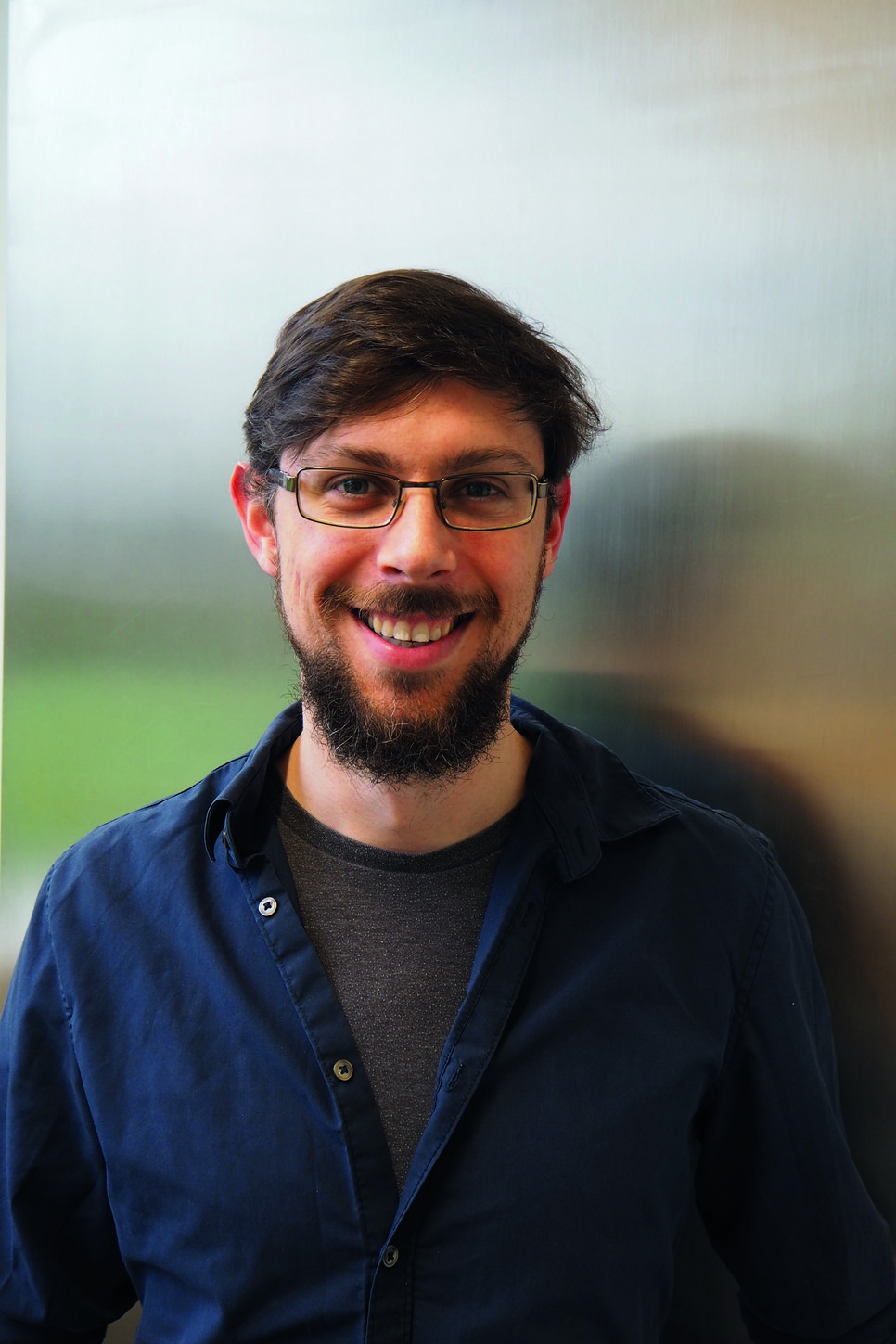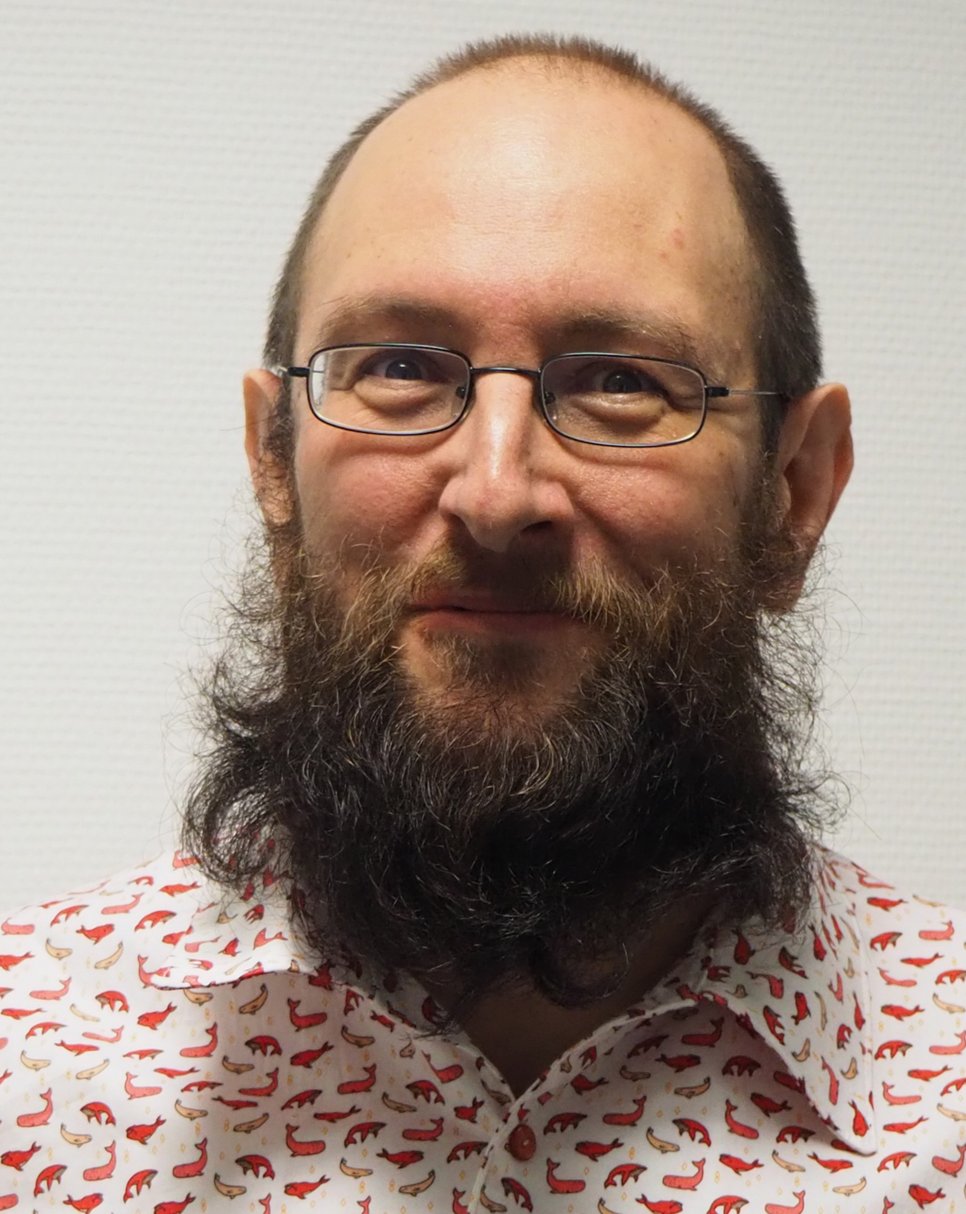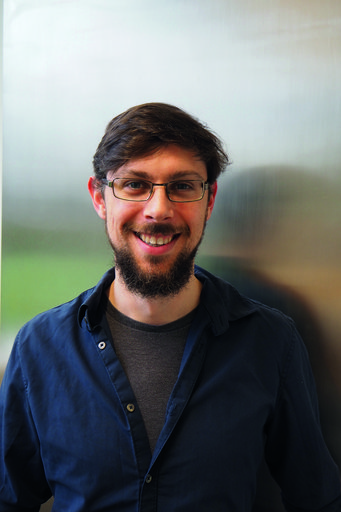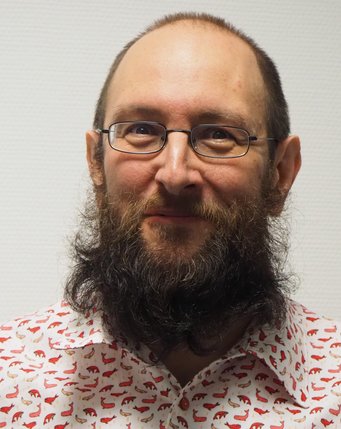Scientists at the MPIE

Dr. Liam Huber is head of the group “Thermodynamics and Kinetics of Defects” since mid-2019. Before that, he was postdoctoral researcher in the department Computational Materials Design, where his current group is also located. Huber did his doctoral thesis about quantum simulations of the interaction between solutes and spatial defects in metals, at the University of British Columbia in Vancouver, Canada. He was supported by the Natural Sciences and Engineering Research Council of Canada, which granted him a Alexander Graham Bell Canada Graduate scholarship.
Huber focusses on the interplay and co-evolution of chemical and structural defects in metals to better understand and predict their role on the material’s properties. Using both ab initio and classical atomistic methods, he is trying to bridge the gap between calculated point defects at thermodynamic equilibrium and materials in real environments containing a variety of defects, often influencing each other. The motivation here is to understand the relation between the behaviour of structural defects like dislocations and grain boundaries and chemical defects, which are introduced intentionally through alloying or unintentionally through exposure to the surrounding environment. Therefore, Huber combines physical models, multi-scale methodology and machine learning techniques.
Selected Publications
Dr. Baptiste Gault, head of the group „Atom Probe Tomography“, was honoured with the highest German research award, the Gottfried Wilhelm Leibniz Prize. The prize is endowned with 2.5 million euros and is awarded by the German Research Foundation.

Gault’s research is focused on the analysis of materials down to the atomic scale to better understand how these influence the material’s properties. Key applications are for instance in structural and functional materials like steel, aluminium or nickel alloys found in cars or planes, but also relevant for magnets in electrical vehicles and windmills. Other projects are relevant to materials for energy conversion, for instance, solar cells, thermoelectrics and catalysis for water splitting. In a recent project, funded by the European Research Council, Gault and his team are studying the distribution of hydrogen atoms in complex alloys to find ways to prevent hydrogen embrittlement. Another topic combines field ion microscopy, atom probe tomography and big data techniques to reach an even higher atomic precision enabling Gault to tailor new alloys. However, Gault does not only analyse metallic alloys, he adjusts the atom probe to analyse biological materials as well. Recently, he studied protein fibrils that are relevant to Alzheimer, to be able to understand how these fibrils cluster with metals found in the human body and effect the brain.
Over the course of his career, Baptiste Gault worked in France, Australia, the UK and Canada, before joining the MPIE in 2016. He also holds a part-time position as Reader in Materials at the Imperial College London.
Selected Publications

